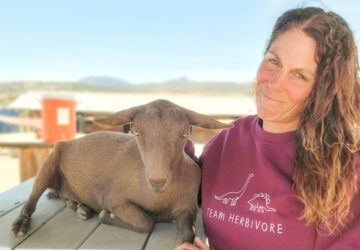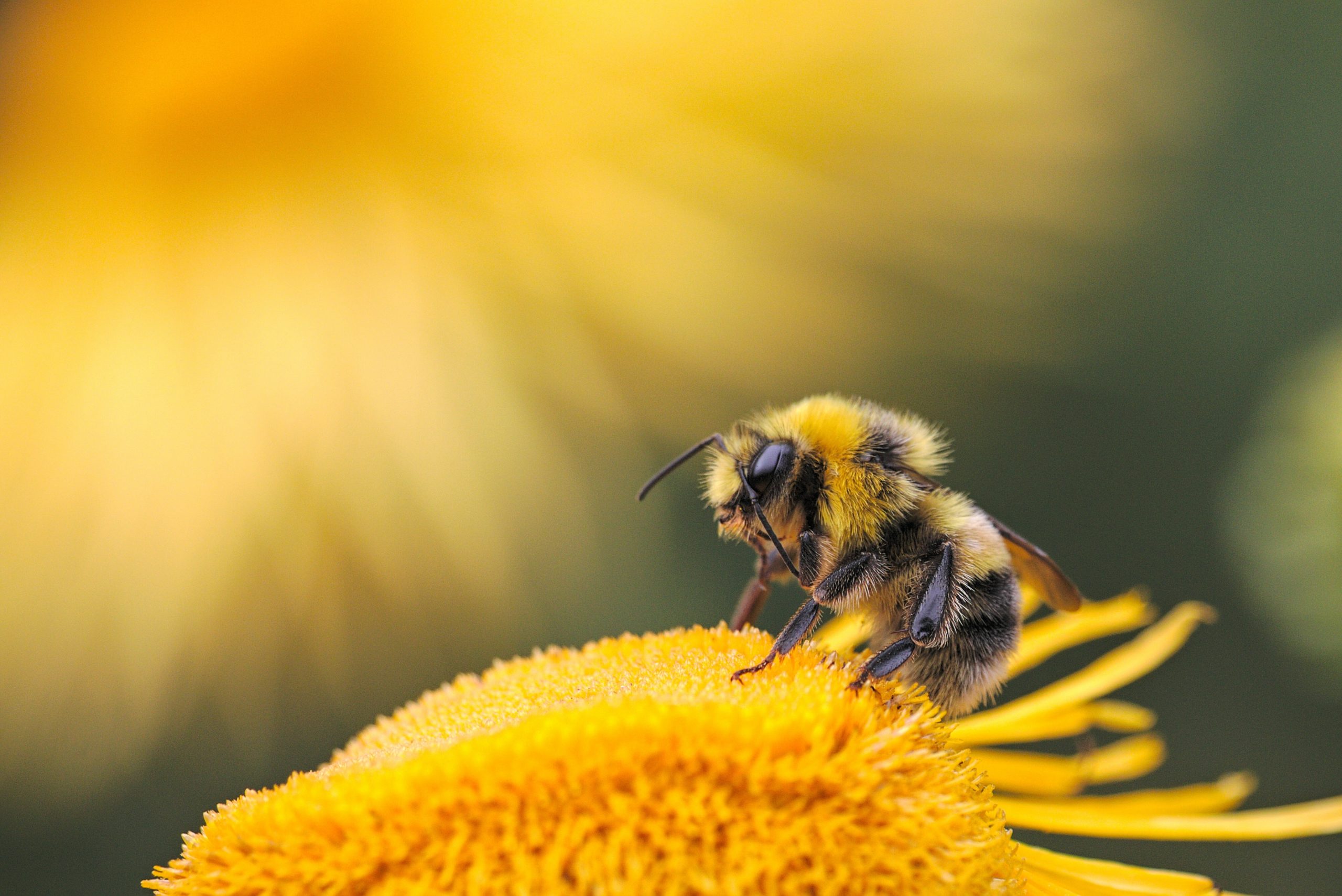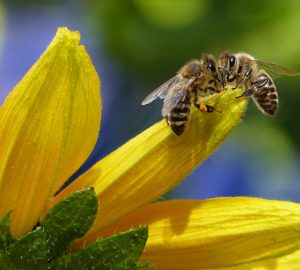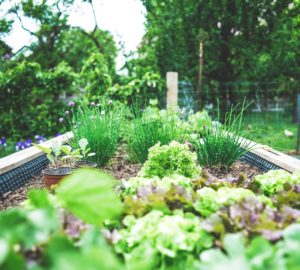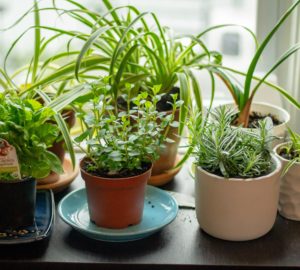The simplest things we can do to protect our un-bee-lievable pollinator pals
As far as we’re concerned, pollinators are some of the most under-appreciated creatures on this planet. They provide us with so much of the food we love to eat, the flowers we love to smell, and the flourishing ecosystems we love to live in and explore. Not to mention, pollinators are truly essential to the survival of the human race and all Earth’s terrestrial ecosystems (let’s just say, we need them… a lot!).
From butterflies and moths to bats and bees, pollinators come in all kinds of shapes and sizes…and each and every one of them play a crucial role in maintaining a balance in Mother Earth. Want to do your part to keep them safe? Here are 9 simple things we can do to use our presence to help pollinators, rather than hurt them.
9 simple things we can do to protect our un-bee-lievable pollinator pals
1. Avoid pesticides
Just the word pesticides doesn’t sound too nice… and they don’t do any favors for our pollinator friends. In fact, they cause them some serious problems. For one, pesticides can directly harm bees, bats, and other pollinators upon contamination. And, unfortunately, one infected bee has potential to harm the entire hive. Also, pesticides can harm insects and plants, which serve as vital food sources for pollinators, which therefore inadvertently harms them. (Fact: Bats can eat up to 3,000 insects in a single night!)
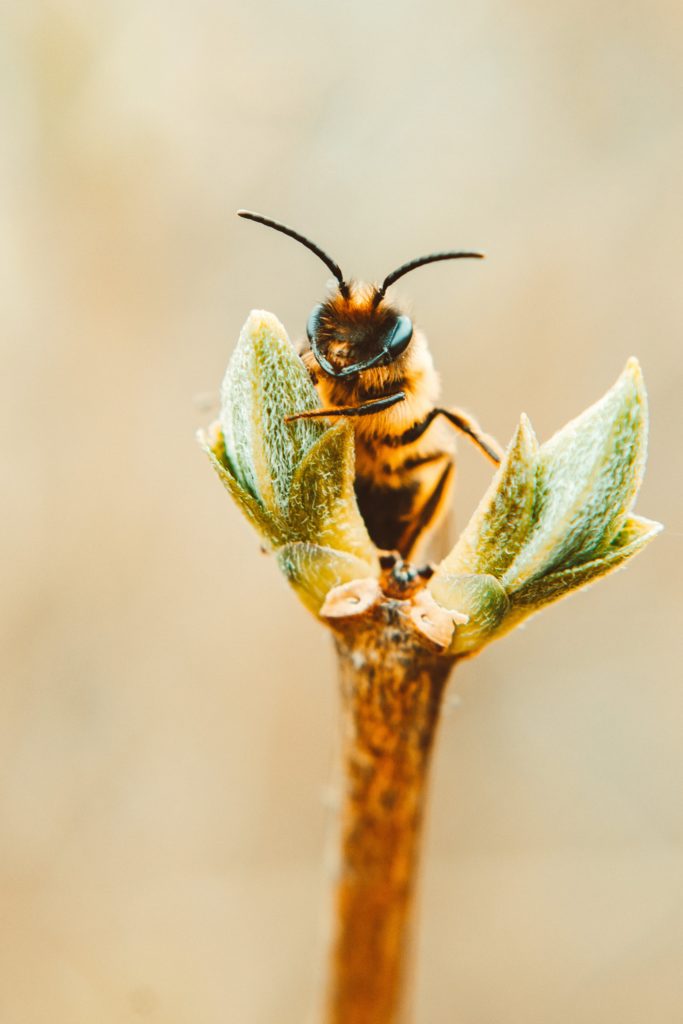
Sadly, ever since the 1940s pesticide use has gone up like crazy. And with increased pesticide use comes major decreases in pollinator populations. So be part of the solution and skip the pesticides — the pollinators will thank you!
2. Grow native plants
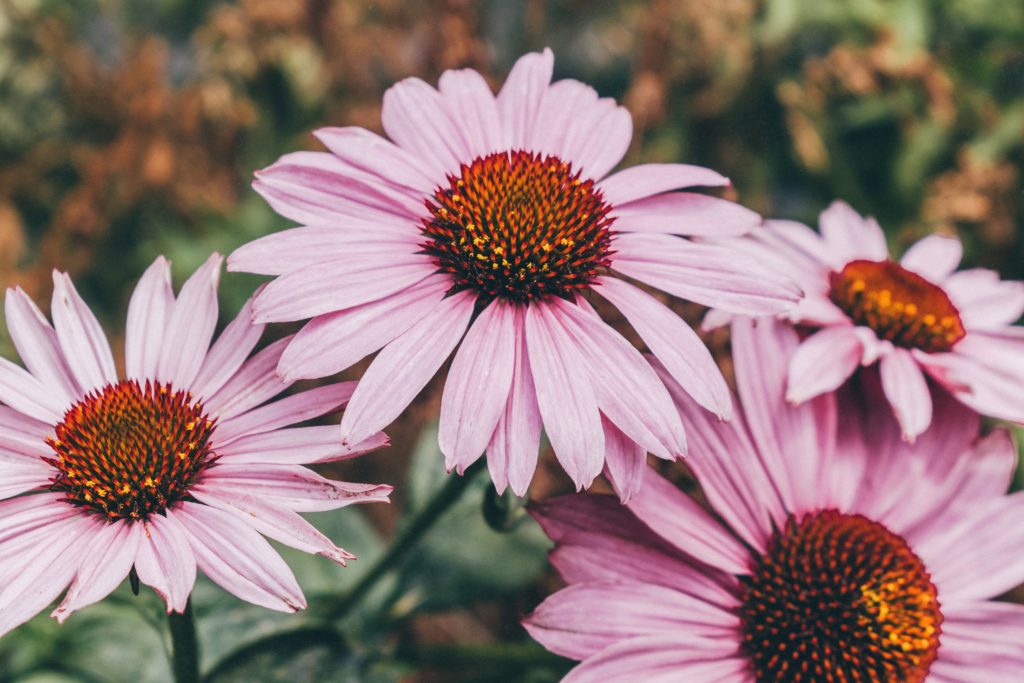
Native plants are essentially plant species that are naturally found in your area. (We like using this tool to easily discover which plants are best for our specific homes, rather than play the guessing game.) And native plants not only provide amazing shelter to pollinators, they also provide them with nutritious food sources. Another perk: native plants are generally easier to maintain and they help preserve your local area’s biodiversity.
3. Mow less
A perfectly mowed lawn may look clean and crisp, but it doesn’t provide much love for wildlife. All those little stems and stalks provide nesting materials for birds. And when you let a lawn do its thing, you’re encouraging new life to grow that wouldn’t have had a chance to flourish.
4. Give pollinators happy homes
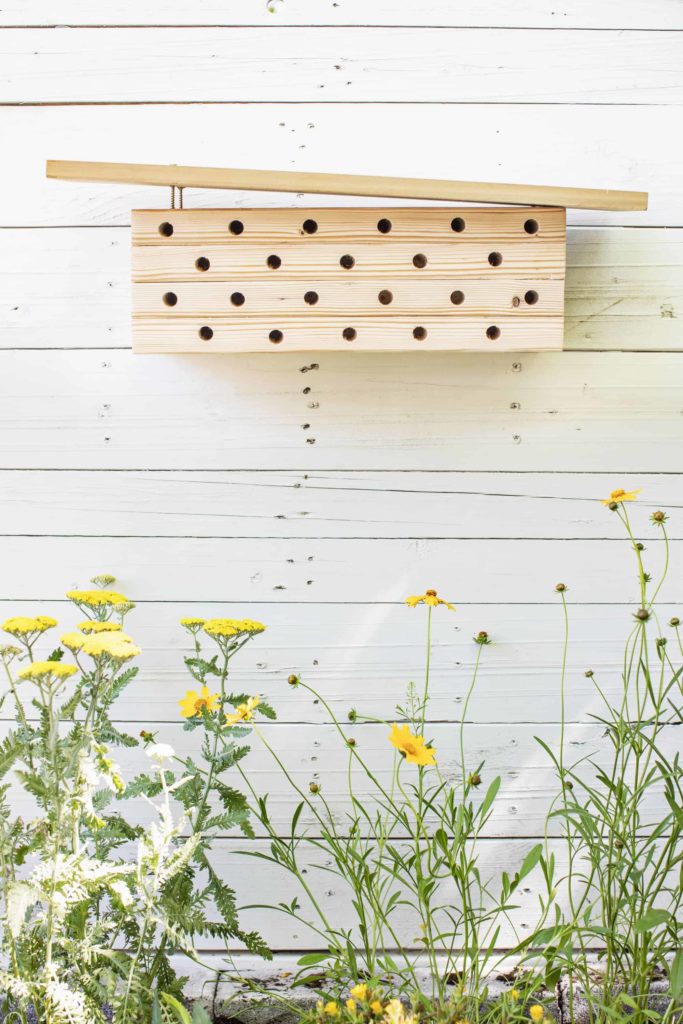
Building bee homes like this one from A Beautiful Mess is an awesome way to help pollinators thrive. You’ll feed your creative soul AND show appreciation for pollinators. Two birds, one scone. 🙂
5. Help pollinators with outdoor baths
Plop a bowl outside with water + stones for birds and bees to perch on… and you’ve got yourself a pollinator bath!
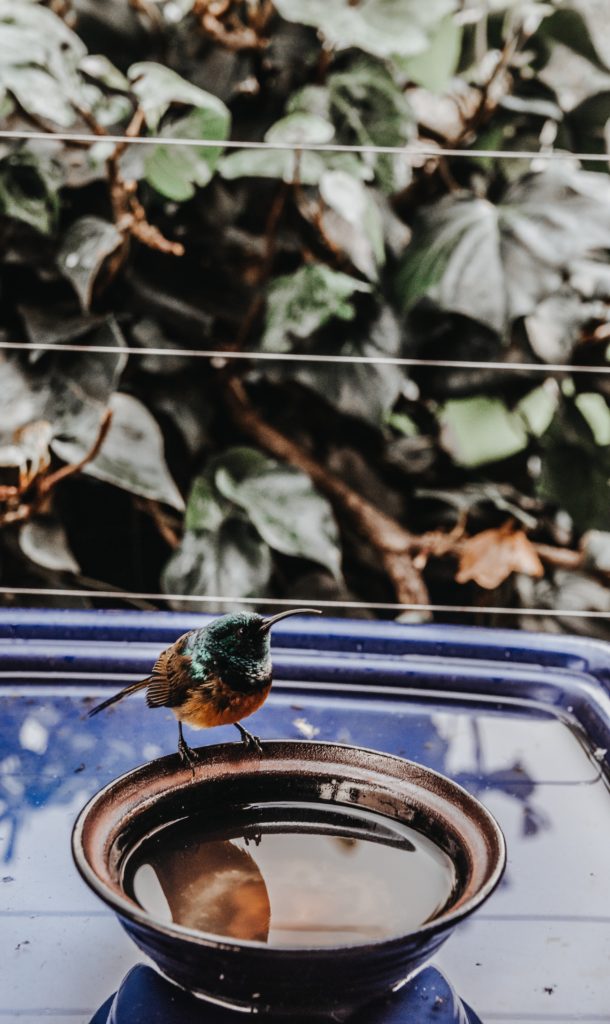
Baths help hydrate pollinators, keep them clean, and give our friends a little cool down. Tip: Avoid filling the water too high, so no one accidentally drowns.
6. Plant milkweed
Milkweed provides key nourishment for pollinators, especially butterflies, as it’s the only plant on which monarchs will lay their eggs, and the only plant on which monarch caterpillars feed.
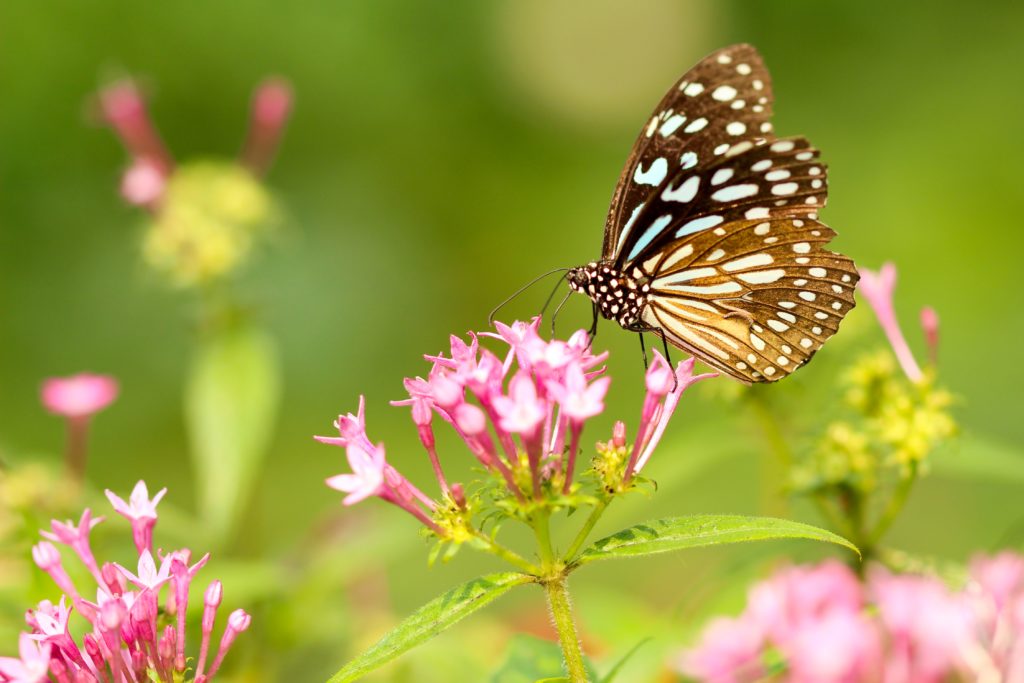
Fortunately, milkweed seeds are available at most local nurseries, so they shouldn’t be too hard to get your hands on!
7. Spend time in nature admiring pollinators
Taking time to learn and observe our pollinator pals is a beautiful way to show love for all creatures on Mother Earth. And once you start observing the little flyers, you’ll feel reinvigorated with inspiration to keep them safe and happy.
8. Leave no trace
While we typically associate the Leave No Trace principles with backcountry settings – the philosophy of exploring responsibly is integral to protecting pollinators, too.
View this post on InstagramA post shared by Leave No Trace (@leavenotracecenter) on
By staying out of caves and mines where bats hibernate, leaving bee hives alone, and not crushing a prairie of wildflowers for a picture (we know it can be tempting!) — you’ll be doing your part to keep pollinators safe.
9. Share the love for pollinators
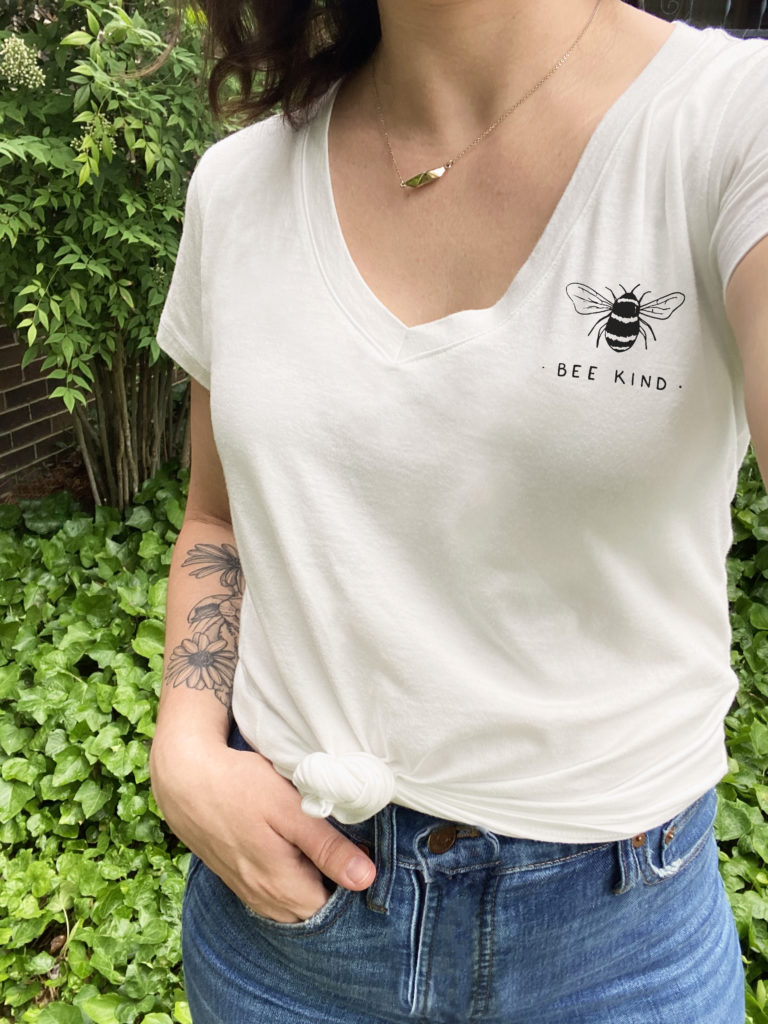
We’re huge believers that knowledge is power and once more people know about the INSANELY important role pollinators play in our planet — more people will feel compelled to do their part to protect them.
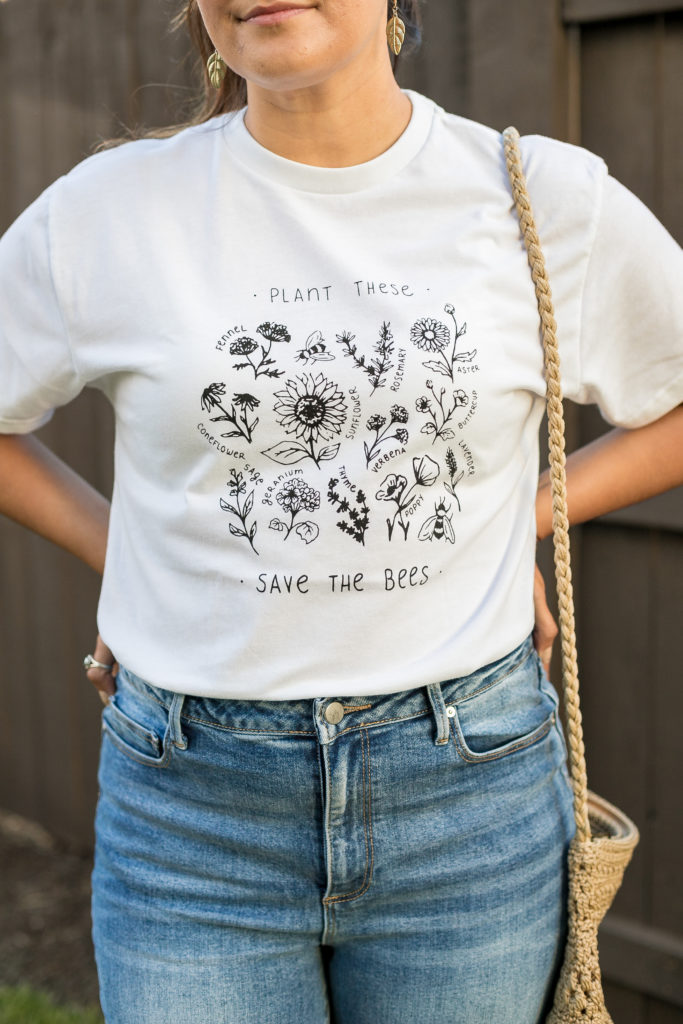
Here are some easy yet empowering ways to spread the word:
- Wear pollinator-friendly tees like our Bee Kind Crop Tees and Bee Kind V-Necks
- Share pictures of pollinators on your social platforms
- Follow organizations dedicated to helping pollinators like The Honeybee Conservancy, Pollinator Partnership, Save Our Monarchs, and Bat Conservation International
Want to put your knowledge about pollinators to the test? Take our Ultimate Pollinator Quiz!



